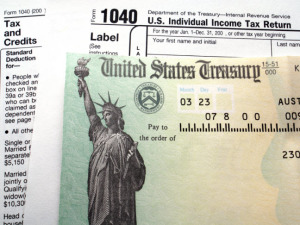Your taxes in retirement may be a lot more complicated than taxes while you’re working.
Social Security checks may or may not be taxed, depending on your income. You’ll pay federal income taxes on most retirement plan withdrawals, but additional state taxes depend on where you live. Tax rates on investments can vary as well.
In my latest for the Associated Press, what to expect when you hit retirement age.
 Today’s top story: Start prepping for next year’s taxes now. Also in the news: Taking the shame out of rebuilding your finances, 3 reasons to hire a fee-only financial planner, and what you should know about Roth IRA withdrawals.
Today’s top story: Start prepping for next year’s taxes now. Also in the news: Taking the shame out of rebuilding your finances, 3 reasons to hire a fee-only financial planner, and what you should know about Roth IRA withdrawals. Today’s top story: 5 great ways to invest your tax refund. Also in the news: How to say no to being a bridesmaid, when to upgrade at the gas pump, and how to decode your financial aid letters.
Today’s top story: 5 great ways to invest your tax refund. Also in the news: How to say no to being a bridesmaid, when to upgrade at the gas pump, and how to decode your financial aid letters.